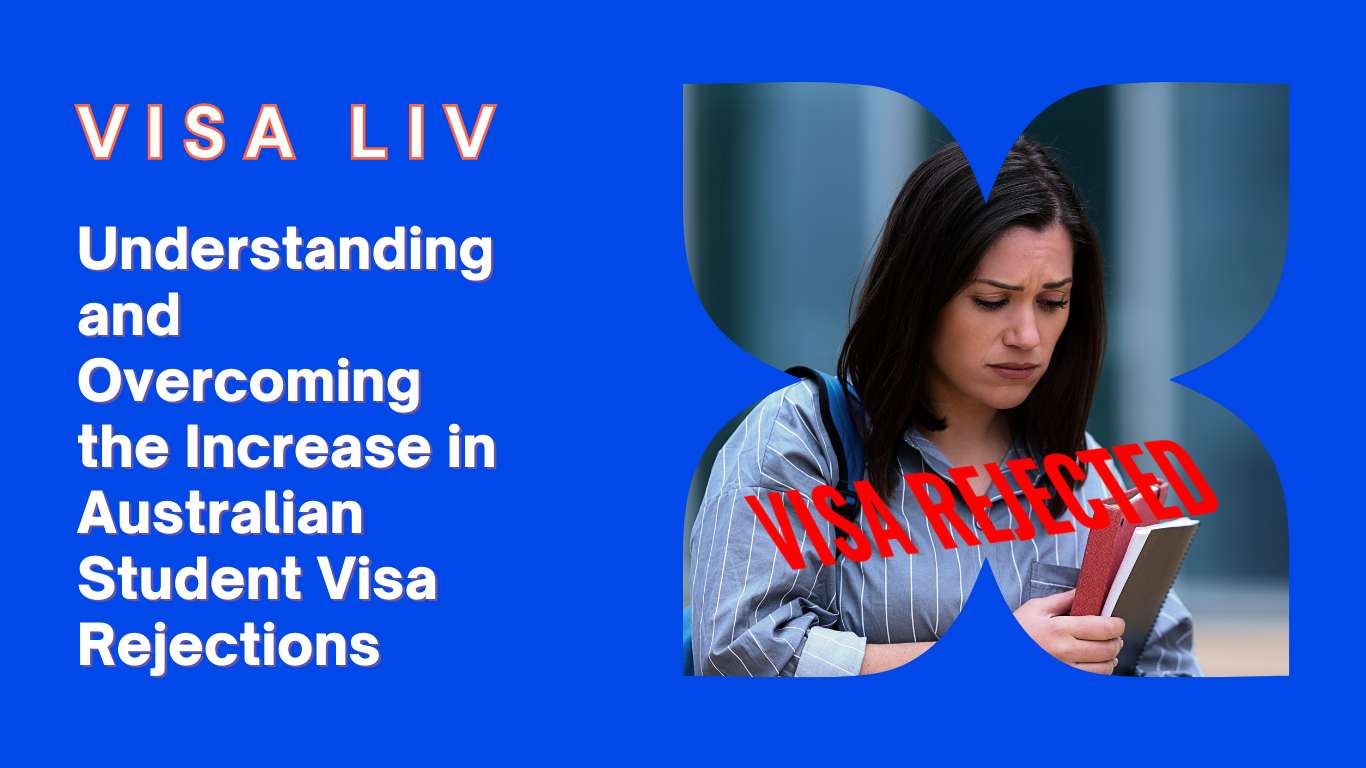Introduction:
Recently, there has been a rise in student visa rejections in Australia, causing concerns for international students and educational institutions. The government’s Migration Strategy, introduced in December 2023 to improve the education sector, has led to stricter visa rules. This blog aims to explore why more visas are being rejected, how it affects students and universities, and the steps taken to address these concerns.
Reasons for More Rejections:
- Tougher Migration Policies: To address the housing crisis and uphold the credibility of international education, Australia has implemented stricter migration policies. The Genuine Student criterion now requires applicants to show substantial proof of their commitment to studying in the country.
- Higher English Proficiency Requirements: Applicants now need higher test scores to get their visas approved, emphasizing the importance of English language proficiency. This change aims to ensure international students can handle academic requirements in English.
- Scrutiny of “High-Risk” Universities: The Department of Home Affairs categorizes universities into risk levels, with levels 2 and 3 indicating higher risk. Applicants targeting these universities face more scrutiny, leading to longer processing times and a higher chance of rejection.
Impact on Students and Universities:
- Preventive Measures by Universities: Some universities are taking precautionary steps by retracting enrolment offers or advising students to withdraw, fearing a surge in rejections could affect the institution’s risk rating.
- Emotional and Financial Impact on Students: Visa rejections and withdrawn offers can cause emotional distress, anxiety, and uncertainty. Additionally, students may face financial strain due to lost application fees or the costs associated with appealing to the Australian Administrative Appeals Tribunals (AAT).
Steps Taken to Address Concerns:
- Advocacy for Clarity: Education sector and advocacy groups are actively working to make visa guidelines clearer and the assessment process fairer. The Australian Association of Education Representatives of India has initiated a petition to address concerns about potentially unfair rejections or delays.
- Reforms for Transparency and Fairness: Efforts are underway to make the visa application process more transparent and fair for international students. This includes streamlining the assessment process and providing clear guidelines for applicants.
Where to Get Updates and Support:
- Reliable Sources: Stay informed about visa policies and processing times from trustworthy sources such as the Department of Home Affairs and Study Australia.
- Support Services: Contact support services from your education provider, including their international student body and registered migration agents, for guidance and assistance.
Conclusion:
To overcome the challenges posed by the increase in Australian student visa rejections, stay informed, seek support, and participate in efforts for a fair and transparent visa assessment process. Collaboration between students, educational institutions, and advocacy groups can bring positive changes, ensuring a more inclusive and accessible international education experience in Australia.
Please visit our website www.visaliv.com for more details, where you will find answers to all of your visa and immigration-related questions.
Thanks,
VisaLiv Team

